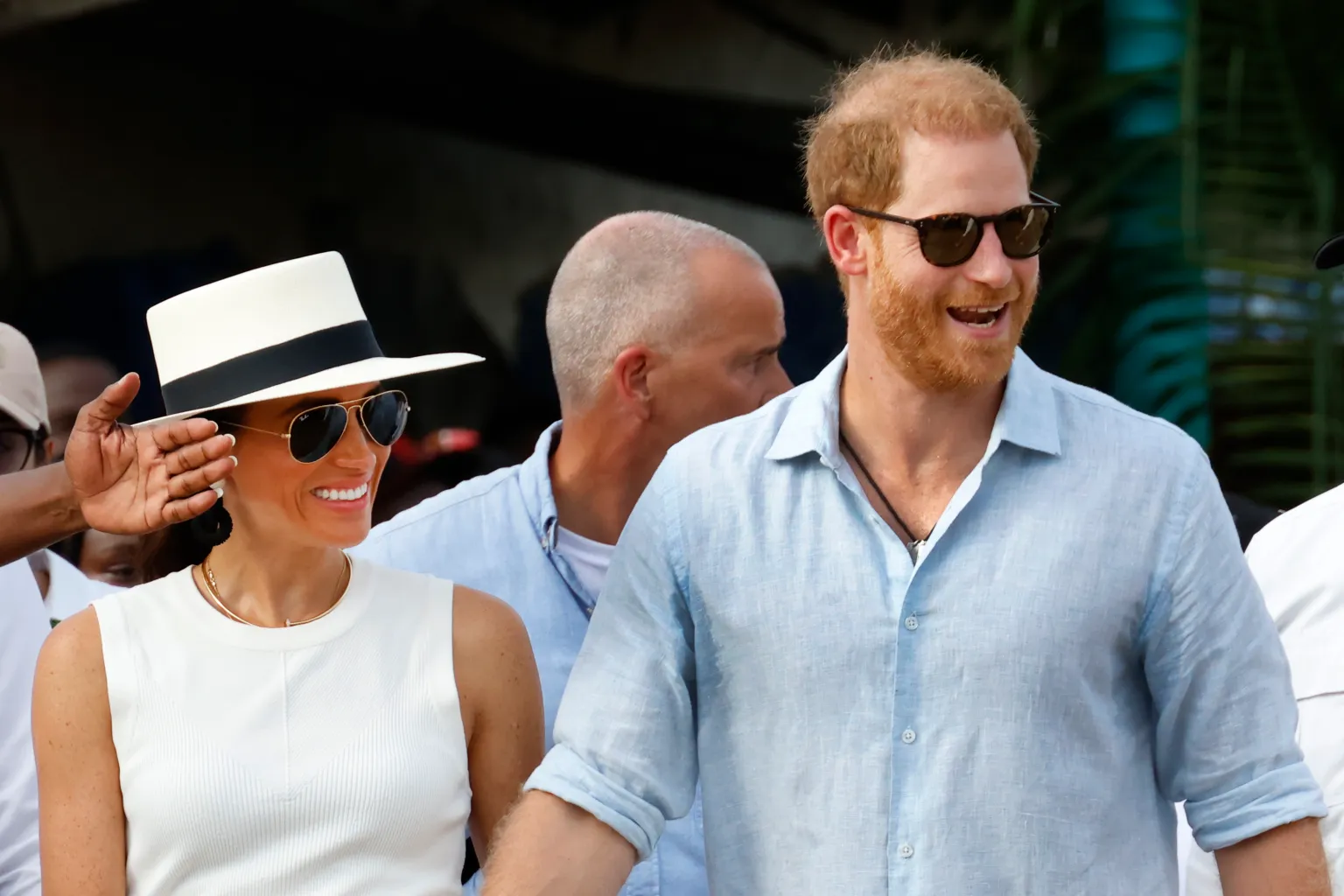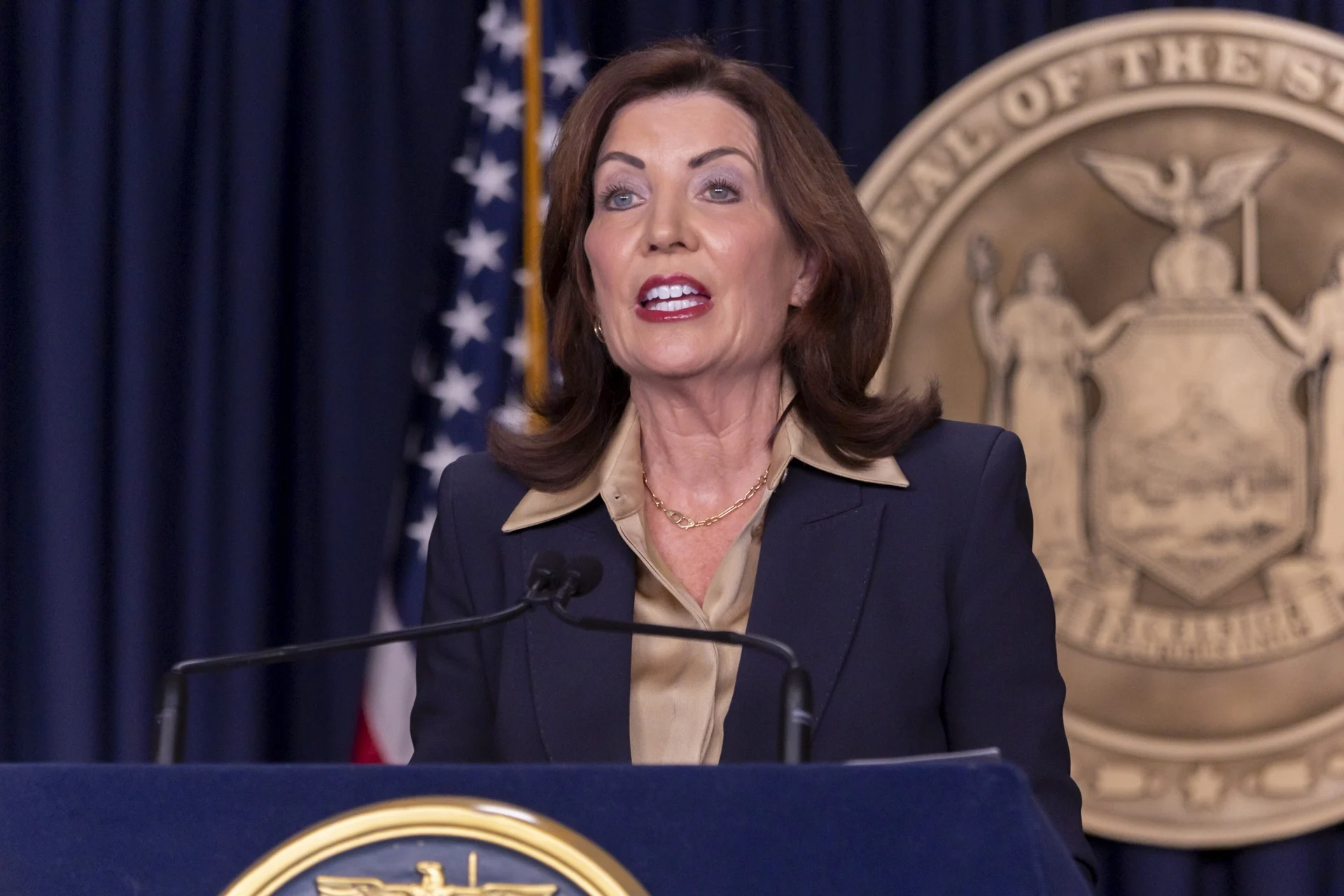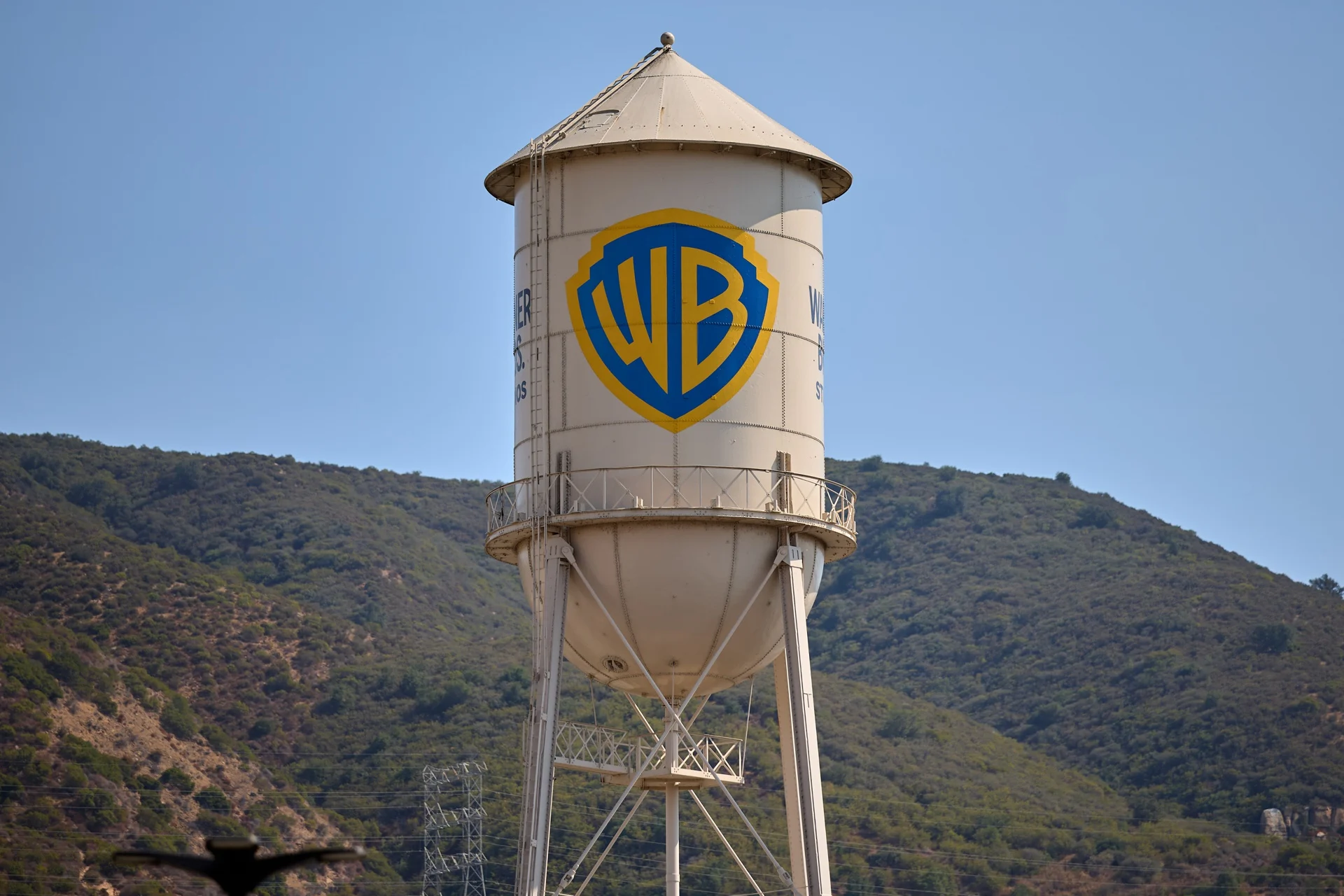International
The Duke and Duchess of Sussex visit the first free town in America, in the Colombian Caribbean

The Duke and Duchess of Sussex, Prince Harry and Meghan, visited this Saturday San Basilio de Palenque, which located in the Colombian Caribbean is the first free people in America, where they talked with leaders about cultural identity, structural racism and advances towards historical reparations for slavery.
Accompanied by the Colombian vice president, Francia Márquez, the dukes first visited the Tambores de Cabildo de La Boquilla School in Cartagena de Indias, where they talked with children and young people and were able to play the ancestral drums, as a first step in a day of investment to the most African roots that Colombia has.
“When we look at that sea, we remember our African heritage. (…) In this piece of land we receive the boys and girls to protect them, with the drums we seek to change their lives (…) we invite them to help us take care of them and take care of our territory, which is threatened,” the director of this school, Rafael Ramos, told them upon arrival.
The vice president made them a teacher on this tour, assuring that they were in an “ancestral territory” that was there “since we were kidnapped in Africa,” and claimed a “sustainable, ecological tourism that does not commodify women,” from one of the most touristic points in the country.
From Cartagena, the dukes and the deputy minister moved to San Basilio de Palenque, declared Cultural and Intangible Heritage of Humanity, to preserve the musical, cultural and oral traditions of their people, with African roots, as well as their language, the palenquero.
In a short visit, of just an hour, the cultural exhibitions allowed Prince Harry and Meghan to interact with the Afro communities and they also visited the cultural house and the Benkos Biohó square, which is named after the leader who commanded the Maroon slave rebellion in the 17th century, after which he became king of St. Basil, which is why he was hanged and dismembered in 1621.
“I wanted our guests to know the essence of what we are as a black people, of our spirituality, of our culture. The strength of the women and men of Palenque. That ancestral legacy that Benkhos, Wiwa, our ancestors, left us, which is what has allowed us to say that we can, that we continue to fight for the restoration of our people and our country,” the vice president claimed in the square.
Meanwhile, Meghan assured that they understand the importance of the people and what they represent for Colombia and was grateful to have been able to know it.
And Prince Harry alleged: “what we are seeing here is all that is a community, do not forget the message of the vice president, they are stronger together, they are stronger united as one.”
During their first visit to Colombia, the Duke and Duchess of Sussex toured several schools in Bogotá since Thursday, focused on children and technologies to promote education and the fight against cyberbullying, and tomorrow they will finish their tour in the city of Cali.
International
New York Announces First 2,000 Seats in Universal 2-K Program

The Governor of New York, Kathy Hochul, and New York City Mayor Zohran Mamdani took another step today in their universal early education agenda by announcing the communities that will have access to the first 2,000 seats in the new 2-K program this fall — an initiative backed by a $73 million investment.
The funding is part of the $1.2 billion package previously unveiled by Hochul to strengthen child care and early childhood education across the city, one of the key campaign promises of the now Social Democratic mayor.
At the time of the announcement, the governor also outlined additional funds to reinforce the existing 3-K early education infrastructure, a program launched under former Mayor Bill de Blasio (2014–2021).
When the 2-K initiative was introduced in January, Mayor Mamdani explained that its first phase would offer 2,000 seats, with the goal of eventually expanding into a universal program — a commitment supported by the governor.
State investment in child care and preschool services is expected to increase to $4.5 billion by fiscal year 2027.
Among the first communities set to benefit from the 2,000 seats are Upper Manhattan and Inwood — areas with large Dominican populations — as well as Fordham and Kingsbridge in the Bronx, a borough with a Latino majority.
In East Brooklyn, Canarsie, Brownsville, and Ocean Hill will also be included. Meanwhile, Ozone Park and the Rockaways are among the neighborhoods that will see the rollout of the 2-K program.
International
Warner Bros. Developing First ‘Game of Thrones’ Movie With ‘Andor’ Writer

Warner Bros. is developing the first feature film based on the hit saga Game of Thrones, with Beau Willimon — screenwriter of Andor — attached to direct, according to a report published Tuesday by Page Six.
The project, currently in early development, will focus on the conquest of King Aegon I Targaryen. A separate television adaptation centered on the same historical storyline within the franchise is also in early stages at HBO.
However, the outlet noted that it remains unclear whether the film will move forward following the recent acquisition of Warner Bros. Discovery by Paramount Skydance.
If the merger is finalized, the movie could potentially be shelved, although that scenario appears unlikely given that the Game of Thrones franchise remains one of HBO’s most valuable and beloved properties.
After six seasons adapting the work of George R. R. Martin, the platform expanded the universe with House of the Dragon, a prequel series set 200 years before the events of Game of Thrones that explores the history of House Targaryen.
International
Spain’s Prime Minister to Address Nation Amid Trump’s Trade Threats

The Prime Minister of Spain, Pedro Sánchez, will deliver an institutional address this Wednesday at the Moncloa Palace regarding the escalating situation in the Middle East and recent threats directed at Spain by U.S. President Donald Trump.
The Spanish government announced that Sánchez will make a statement at 9:00 a.m. local time to outline his position on the latest developments following the U.S. and Israeli attacks on Iran.
Sánchez is expected to reiterate Spain’s reasons for opposing the use of U.S. military bases on Spanish soil in the operation—an action he has already described as being outside international law—while also expressing criticism of the Iranian regime.
Government sources indicated that the address had been planned prior to Trump’s remarks criticizing Spain’s stance. However, following those comments, Sánchez is now also expected to respond directly to the U.S. president’s statements.
Trump has threatened to “cut all trade with Spain” and said he wants “nothing to do” with the country after Madrid refused to authorize the use of the Morón and Rota military bases in southern Spain for operations against Tehran.
The U.S. president also labeled Spain “a terrible NATO partner” and warned that “no one” would tell him he could not use the facilities.
In response, the Spanish government stated that Spain fulfills its commitments to NATO and European defense. It also warned Trump that any review of bilateral trade relations must respect international law and the agreements in place between the European Union and the United States.
-

 International3 days ago
International3 days agoIran Reports 201 Dead, 747 Injured After U.S. and Israeli Strikes
-

 International3 days ago
International3 days agoPope Leo XIV Urges End to ‘Spiral of Violence’ in Middle East
-

 International2 days ago
International2 days agoBrazil’s Supreme Court Rejects Bolsonaro’s Bid for House Arrest
-

 International4 days ago
International4 days agoSecurity Council to Hold Emergency Meeting on Middle East Crisis
-

 International5 days ago
International5 days agoArgentina’s Senate Reviews Milei-Backed Labor Overhaul
-

 International5 days ago
International5 days agoTrump Floats “Friendly Takeover” of Cuba Amid Rising Tensions
-

 Sin categoría4 days ago
Sin categoría4 days agoTrump: ‘We Think It’s True’ Amid Claims Iran’s Supreme Leader Was Killed
-

 International2 days ago
International2 days agoAnti-ICE Billboard Campaign Targets Immigration Spending in 31 U.S. Cities
-

 International2 days ago
International2 days agoTrump Warns of ‘Major Wave’ of Attacks as Iran Conflict Escalates
-

 International2 days ago
International2 days agoMexico Calls for Immediate Probe After National Dies in ICE Custody
-

 International1 day ago
International1 day agoSpain’s Prime Minister to Address Nation Amid Trump’s Trade Threats
-

 International2 days ago
International2 days agoBolivia Orders Three Investigations Into Deadly Military Plane Crash
-

 International1 day ago
International1 day agoNew York Announces First 2,000 Seats in Universal 2-K Program
-

 Central America2 days ago
Central America2 days agoPanama Canal Monitoring Trade as Middle East Conflict Disrupts Shipping
-

 Central America1 day ago
Central America1 day agoGuatemala’s Attorney General Fails in Bid for Top Court Seat Amid Corruption Allegations
-

 International1 day ago
International1 day agoWarner Bros. Developing First ‘Game of Thrones’ Movie With ‘Andor’ Writer




























